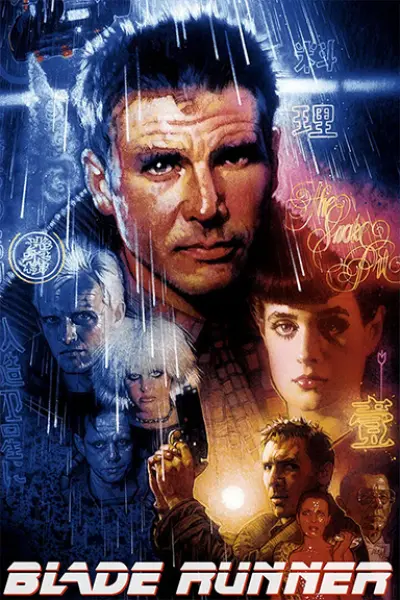
"Blade Runner," directed by Ridley Scott in 1982, stands as a cinematic landmark, weaving a complex narrative in a dystopian future. Set in 2019, this Los Angeles is a maze of crime, pollution, and perpetual rain, driven by climate change. The wealthy have escaped to off-world colonies, leaving behind a society grappling with profound ethical and existential dilemmas. Central to this tale is Rick Deckard, a former police officer and a 'Blade Runner,' tasked with 'retiring' rogue replicants—genetically engineered humanoids created for off-world labor. These replicants, outlawed on Earth, are hunted due to their potential threat to human safety.
The story unfolds as Deckard is pulled from retirement to track down four escaped replicants—Roy Batty, Leon, Pris, and Zhora—led by Roy in a quest to extend their artificially limited four-year lifespans. Deckard's investigation leads him to the Tyrell Corporation, where he encounters Rachael, a replicant unaware of her true nature due to implanted memories. This discovery sets off a chain of events involving confrontations with the replicants, intense philosophical musings, and a budding, albeit complicated, romance between Deckard and Rachael.
"Blade Runner" masterfully blends film noir with sci-fi, reflecting Ridley Scott's distinctive vision. The film's dark, brooding atmosphere and complex visual style contributed significantly to its status as a cult classic. It initially struggled at the box office, but its intricate layers and themes garnered it a dedicated following, particularly in the era of home video, allowing viewers to scrutinize its rich imagery. The film, loosely based on Philip K. Dick's novel "Do Androids Dream of Electric Sheep?," explores themes of human essence and the authenticity of replicated beings, resonating deeply with existential and philosophical questions.
Scott's vision, influenced by the cyberpunk genre and film noir of the 1950s and 60s, paints a picture of a world where corporatization and technological advancements have spiraled out of control. This depiction reflects the anxieties of 1980s America, particularly concerning globalization, multiculturalism, and the rise of East Asian economic powers. Visually, the film blends Western and Eastern aesthetics, highlighting the commodification of life in a consumer-driven society dominated by massive corporations.
Thematically, "Blade Runner" delves into profound questions about memories, freedom, morality, identity, and the implications of artificial intelligence. It uses cinematic techniques like color, lighting, and sound to convey mood, tone, and symbolism, subtly critiquing humanity's varying perceptions. The film's nuanced exploration of these themes, through the lens of its characters—Deckard's moral conundrum, Rachael's struggle with identity, and Roy's quest for longevity—conveys a deep sense of the human condition and our relationship with technology.
Ultimately, "Blade Runner" is more than just a dystopian sci-fi film; it's a profound meditation on what it means to be human in an increasingly artificial world. It challenges viewers to contemplate the essence of humanity, the morality of creation, and the inexorable march of technology, leaving a lasting impact on both cinema and culture.

